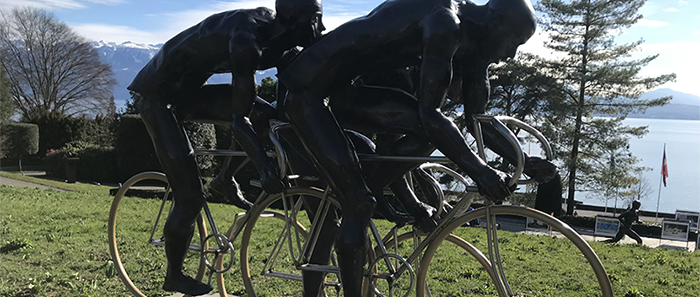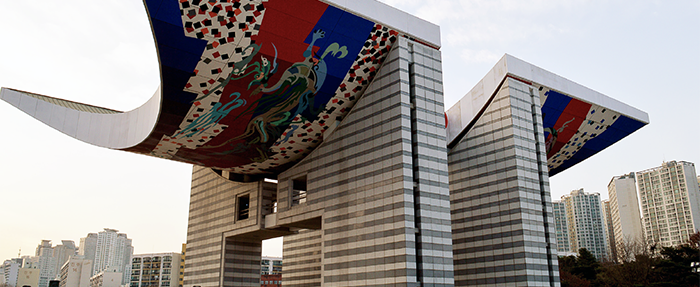Sport Industries in the Neoliberal Age and Reconfiguration of the Future in the South

The sports industries have undergone radical transformations since the 1980s, when the neoliberalism conceived by the interwar Vienna School became a political reality. Now in the grip of private television channels, mainstream sports sought out new sporting talents in ever more distant countries, raising hopes of economic success and sporting glory among male youth in the countries of the South, where economies collapsed during the same period. But these hopes clashed with the more likely reality of failure. Ethnographic works carried out by the GLOBALSPORT team on football players in Senegal and Cameroon, rugby players in Fiji, and Senegalese wrestlers highlight the effects of neoliberal capitalism on bodies and futures in very different sports and contexts.
Keywords: Sport, Migration, Neoliberalism, Globalisation, Youth, Masculinity, Hope, Senegal, Cameroon, Fiji
Niko Besnier is a French-born American and New Zealander anthropologist and assistant professor at La Trobe University in Melbourne. In spring 2022 he was a visiting professor at Charles IV University in Prague. In 2012-17 he led a project on sports migration and masculinity, funded by an ERC Advanced Grant, and in 2015-19 he was editor-in-chief of the international journal American Ethnologist. He has published on a wide range of topics, such as gender and sexuality, body, globalisation, gift, neoliberalism, migration, and gossip.
Poster Niko Besnier.pdf (913 Ko)
Sport for Peace? Critical Sociological Insights on the Problems and the Possibilities

The field of ‘sport and peace’ has featured substantial activity and debate across a wide range of actors, notably governmental bodies, corporations, sport organizations, non-governmental organizations (NGOs), campaign groups, and academics, at transnational, national, and community levels. Drawing on extensive international research, this conference explores this complex and multi-layered field with respect to three interrelated themes. First, we probe the diverse meanings and manifestations of peace – particularly with reference to contemporary globalization processes – and their implications for sport-related activity. Second, we explore the global ‘Sport for Development and Peace’ (SDP) sector in which diverse actors utilize sport to pursue varying models or visions of peace in different contexts. Third, we examine how leading actors – such as nation-states, intergovernmental organizations, and international sport federations – seek to operate in the sport/peace field to enhance their ‘soft power’.
In considering these issues, the discussion also explores the relationships of peace to social justice and human rights; and the question of what roles should be played by independent academic researchers in the sport/peace sphere and in the wider domains of politics and civil society.
Richard Giulianotti is UNESCO Chair in Sport, Physical Activity and Education for Development, and Professor of Sociology at Loughborough University, UK. He is also Professor II at the University of South-Eastern Norway.
He has researched and published widely on sport, development and peace, globalization, mega-events, policing and security, youth, crime and deviance, and migration. He is author of the books Football: A Sociology of the Global Game (Polity, 1999), Sport: A Critical Sociology (Polity, 2005, revised 2015), Ethics, Money and Sport (with A.J. Walsh, Routledge, 2007), Globalization and Football (with R. Robertson, Sage, 2009), and Policing the London 2012 Olympics (with G. Armstrong & D. Hobbs, Routledge, 2016). He has edited many books, including (as co-editor) The Routledge Handbook of Sport for Development and Peace (Routledge, 2019), and has published numerous articles in international journals and edited collections. He has undertaken multiple research projects funded by the European Commission, UK Economic and Social Research Council (ESRC), and the Nuffield Foundation. His work has been translated and published in fifteen languages.
flyer.pdf (799 Ko)
